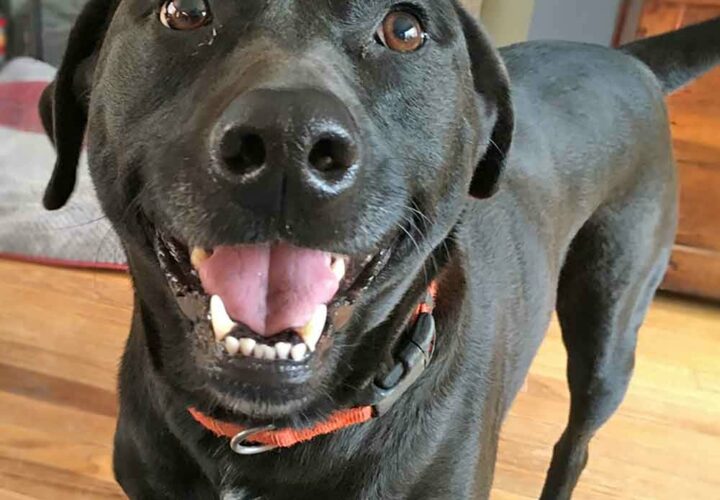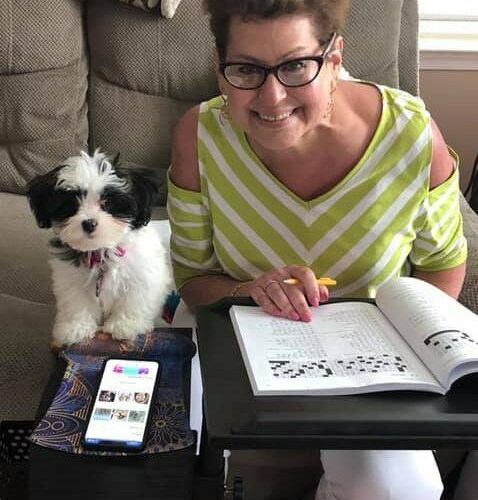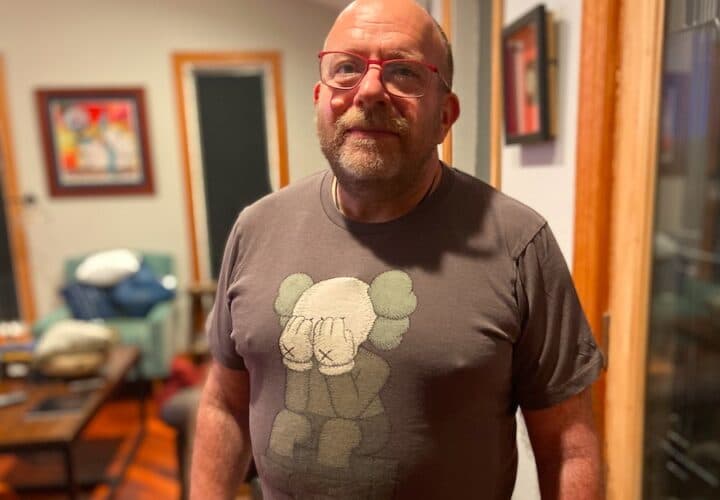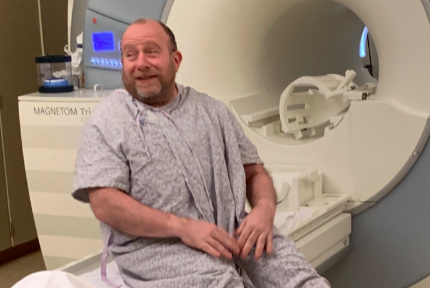Reflecting on his early-onset Alzheimer's diagnosis five years on, the author finds inspiration in a friend who was able to put her own illness out of her mind and enjoy life right to the end.
A few months ago, we discovered some disturbingly large and firm lumps on our dog Sadie. We quickly made an appointment with the vet and sadly learned that Sadie had lymphoma and only had a few months to live.
In one of my text updates with our vet a week or two later, I noted that while the lumps were growing frighteningly large, Sadie continued to eat and play with her toys. Her spirit seemed unchanged.
The vet’s response stopped me cold. “I’m glad she is still feeling so well,” the doctor said. “The beauty of being a dog is they don’t know anything is wrong. They just want to play.”
After a few minutes thought, I replied: “Love your dog observation. People should try to live that way. Particularly those named Phil.”
***
It’s been almost five years since I was diagnosed with early-onset Alzheimer’s. After diagnosis, I did more than a bit of research and found that many people with early-onset Alzheimer’s tend to live only five years or so. In fact, just as I learned of my diagnosis, Pat Summit, a world-renown women’s basketball coach, died. She had been diagnosed with early-onset Alzheimer’s five years before.
Understandably, I put a five-year cap on my remaining days. For many of those days, I believed that I would no longer be Phil as Alzheimer’s stole my memories, my cognitive skills and ultimately my ability to swallow and breathe.
I started to put my affairs in order. Within months, my long-term partner Tim and I stood in front of a judge at the county courthouse getting married. I updated my will, applied for disability benefits from Social Security and prepared for the worst.
And I waited, agonizing over my diagnosis and becoming hyper-aware of any memory or cognitive problems. And there have been quite a few of those problems.
There was the time, for example, when I was absolutely convinced that a commuter train jumped tracks and took me to the wrong station. (Spoiler: I got on the wrong train.) Or the time I had a heated debate with a friend over whether I had attended a live performance of one of my favorite artists. I was convinced I had not. (Spoiler alert: I had.)
But clearly I’m not going to die — from Alzheimer’s at least — this year or anytime soon.
I’ve been enrolled since the start of my journey in trial for Biogen’s aducanumab and I can definitely say that I’m feeling better these days than I was five years ago. I’d say that I’m currently living with a fairly typical case of mild cognitive impairment.
My cognitive tests seem to be pretty solid — way better than they were five years ago — and I learned that a recent PET scan found no sign in my brain of amyloid, the protein believed to be associated with Alzheimer’s.
Don’t get me wrong. I’m not cured. My long-term memories have not returned, and I often continue to struggle for words. My husband Tim believes my short-memory may be showing the first signs of slippage. I definitely have trouble mapping out long-term projects and I easily become overwhelmed by an even mildly complicated task. I’ve recently decided that driving makes me too nervous so I’ve largely hung up my keys. (I may still go to the store if necessary, but nothing further than that.)
There are good days. I can still write. I continue to do media interviews and serve on the Board of the Delaware Valley Chapter of the Alzheimer’s Association. Tim and I work on our home and our garden and cherish our pets.
In fact, I’ve been told that I might live for another 20 years or so. And who knows what will happen as the science of Alzheimer’s advances. Maybe I’ll make it to 90 or 100 or beyond.
The big question, though, is whether I want to live for another 20 years. The idea of worrying about this disease for another two decades is just absolutely exhausting. Perhaps I could do another 20 years if I could somehow forget that I have this diagnosis and just learn to be like Sadie and play until I no longer can.
***
We lost Sadie less than a month after her lymphoma diagnosis. As her doctor had predicted, one Saturday morning we woke up to find Sadie clearly miserable, uninterested in her food, hoarding all the dog toys or announcing the arrival of the day’s mail. (She despised the mail truck; once she actually launched herself through a plate glass window in her desire to catch it.)
We debated whether to bring Sadie to an emergency clinic to end her suffering or to wait until Monday to bring her to our vet. We were able to get Sadie to eat a bit — chicken and rice at first and then cat food, which she had always adored — so we decided to wait.
That Monday at around noon, we said our goodbye. Over the last five years, I’ve cried a lot but I can’t remember the last time that I cried so hard as I laid on the floor with Sadie as she faded away.






Do u know anything about Memantine?
Was Put on the drug for Alzheimers.